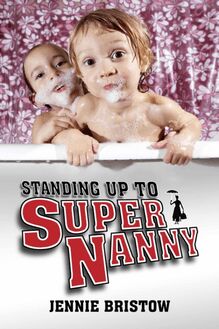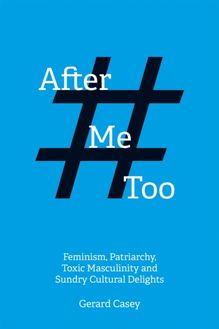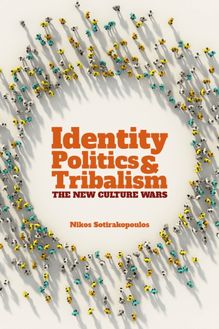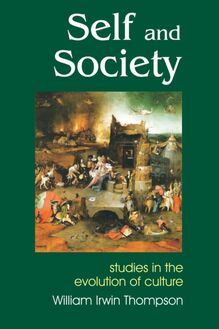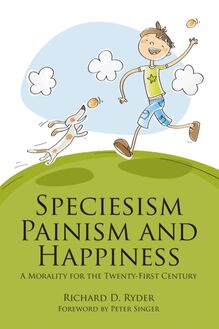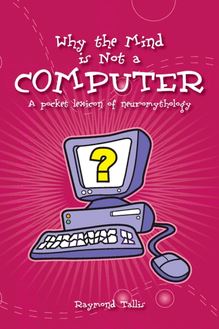Why Rape Culture is a Dangerous Myth , livre ebook
74
pages
English
Ebooks
2015
Vous pourrez modifier la taille du texte de cet ouvrage
Obtenez un accès à la bibliothèque pour le consulter en ligne En savoir plus
Découvre YouScribe en t'inscrivant gratuitement
Découvre YouScribe en t'inscrivant gratuitement
74
pages
English
Ebooks
2015
Vous pourrez modifier la taille du texte de cet ouvrage
Obtenez un accès à la bibliothèque pour le consulter en ligne En savoir plus
Publié par
Date de parution
01 septembre 2015
Nombre de lectures
0
EAN13
9781845408855
Langue
English
Publié par
Date de parution
01 septembre 2015
Nombre de lectures
0
EAN13
9781845408855
Langue
English
Title page
Why Rape Culture Is a Dangerous Myth
From Steubenville to Ched Evans
Luke Gittos
SOCIETAS
essays in political
& cultural criticism
imprint-academic.com
Publisher information
2015 digital version by Andrews UK Limited
www.andrewsuk.com
Copyright © Luke Gittos, 2015
The moral rights of the author have been asserted.
No part of this publication may be reproduced in any form without permission, except for the quotation of brief passages in criticism and discussion.
Originally published in the UK by
Imprint Academic, PO Box 200, Exeter EX5 5YX, UK
Originally distributed in the USA by
Ingram Book Company,
One Ingram Blvd., La Vergne, TN 37086, USA
Acknowledgments
This book is the result of conversations with too many people to mention here. I feel very grateful for growing up among people who think seriously about the world. Thanks to all of you.
To everyone at the Institute of Ideas, especially those involved in the Debating Matters competition, the ideal training ground for young thinkers. To Claire Fox, a true political and intellectual inspiration, who has been consistently patient and generous with her time. I learnt a long time ago to listen when she speaks. The same can be said of Helen Reece, whose thinking on this topic I am always trying to catch up with.
To everyone who reviewed early drafts, too many to list here but thank you very much. To everyone at Spiked . To Tim Black and Brendan O’Neill for providing invaluable intellectual input. To Rob Lyons, a patient editor who knocked everything into shape, notwithstanding my efforts to knock it out of shape again. To all at Hughmans for teaching me the law.
To my family, who disagree with almost everything I write but who are great fun. I love you all dearly.
And to Nina, who puts up with a lot for the sake of genuine intimacy.
Introduction
On the 13 July 2015, M pleaded guilty to rape. We have to call him ‘M’ because he is a sixteen-year-old child and is accordingly entitled to anonymity. M suffers from clinical depression and has an IQ of sixty-one, which puts him in the lowest 0.5 percent of the population. He pleaded guilty to raping another boy, who is now fourteen. The victim in the case was the little brother of M’s friend. It was alleged that M had forced the victim, over a number of years, to engage in mutual masturbation and oral sex. He had also attempted anal sex.
When the complainant was asked why he hadn’t reported their previous activity, he responded that he was scared that his brother would find out and ‘call him gay’. The boy’s account seemed to portray a complex interaction, which some around the case referred to as ‘experimentation’. He never said that M had used violence or physical force. It wasn’t the complainant that went to the police. Rather, the complainant told his ‘girlfriend’, who then told the boy’s family [1] . When he was interviewed, the complainant told the police that he felt ‘pressured’ into doing what M wanted and did not feel as though he could turn him down As a result of his plea, M will be placed on the sex offenders’ register and may serve a term of compulsory detention. He will also have a rape conviction on his record for the rest of his life.
Of course, we could just call this another successful rape prosecution and be done with it. But when I heard about this case, I had to ask one question: why had we not heard about this case in the media? A clinically depressed child with an educationally sub-normal IQ being prosecuted for non-violent sexual offending against another child two years his junior. Here were two vulnerable children, who had engaged in what some around the case described as ‘youthful sexual experimentation’, and who were both being dragged into the criminal courts to live their experiments out in public, for the judgement of the adults around them. For all we know, the interactions between the two boys were the actions of two boys confused about their sexuality who felt like they had no avenue to express their uncertainty other than with one another. Did we have no way of dealing with this case which avoided prosecuting? Was slapping the label ‘rape’ on it the only way we could understand what had happened between these two boys?
It seemed bizarre to me that no one was angry about this prosecution. To my mind, this case was an outrage. No society should treat its most vulnerable in this way. Why had this appalling case, this outrageous miscarriage of justice, not come to the attention of the public?
To answer that question, consider the panicked news stories that do appear around rape. In June 2015, as this book was being completed, the Metropolitan Police in London released a report by a former Scottish lord advocate, Dame Elish Angiolini, into their own handling of rape cases. [2] The report claimed that rape allegations had been ‘soaring’ in recent years, to the extent that the Met were ‘struggling to cope with the number of people alleging they had been raped’. While the number of allegations had increased by sixty-eight percent, there were only seventeen percent more cases prosecuted. The report warned that, if current trends continued, the number of ‘unpunished rapes’ would continue to rise. The report went on to recommend that the law enshrine a statutory definition of when someone was too drunk to consent to sex. Sir Bernard Hogan-Howe, the commissioner of the Metropolitan Police, suggested that rape investigations should be assigned the same level of police resources as investigations into domestic terrorism.
Contrary to the reaction of London’s most senior police officer, these figures did not, in and of themselves, provide any basis for panic. The report does not, as some newspapers reported, [3] claim that rapes had increased, merely that the number of allegations had increased. There are a number of different ways to interpret this increase. It could mean that more and more people are being raped year after year, it could be that more people are willing to make allegations than before, or it could mean that more and more people are thinking they have been raped, but are wrong. The number of allegations tells us little or nothing about the trends in the number of rapes that have actually occurred. It would be quite possible for the number of actual rapes to be falling at the same time as the number of allegations was rising.
Nor is it unusual for there to be a significant difference between the number of allegations and the number of cases eventually prosecuted. In fact, for most criminal offences, the number of prosecutions is far lower than the number of allegations made. With respect to some offences against the person, only three percent of allegations result in a prosecution.
The reaction to this report was typical of the hysterical climate that has arisen around rape. This book is a modest attempt to do two things. The first is to question the expansion of law and regulation further and further into the most private areas of our lives, of which the expansion of rape law is just one part. Second, it is an attempt to dispel the dangerous myth of a ‘rape culture’, which is an important element of the current panic. The central argument of the book is that these two trends are feeding an atmosphere of panic around rape, which causes significant harm to both victims of rape and defendants in rape cases. It also has implications for the way we live our intimate lives that extend beyond the criminal justice system.
The claims of rape culture
One of the primary arguments of those who believe that we live in a ‘rape culture’ is that rape is prevalent and underreported. It is said that, in the UK, 85,000 women are raped every year and that only a tiny proportion of rapists are ever punished. Social psychological research into ‘rape myth acceptance’ purports to demonstrate that the public does not understand rape nor what is required to obtain legally satisfactory consent. While this research is subject to robust academic challenge [4] , the claims of these research projects are routinely cited as fact in the popular media. Crime surveys routinely suggest that women experience rape, but do not see themselves as rape victims, suggesting that they have - to some degree - internalised rape as a normal part of their sex lives.
Rape culture proponents argue that certain cultural phenomena add to the prevalence and acceptance of rape by ‘normalising’ sexually aggressive behaviour. Across the country, student unions have banned Robin Thicke’s pop song ‘Blurred Lines’ for contributing to the ‘rape culture’ on the basis that it includes the words ‘you’re a good girl, you know you want it’. The song has been widely denounced in certain circles as a ‘rape anthem’. [5] A growing list of films have been denounced as contributing to a ‘rape culture’ by portraying women in an apparently degraded or objectified way. The 2013 film Spring Breakers , in which a group of American female students become involved in a crime spree while on a spring break, was said to be ‘reinforcing’ rape culture by objectifying women. While many have argued that contemporary culture is increasingly ‘sexualised’, to the extent that sexual suggestion is a more common feature of films and music, an increasing number of people argue today that these cultural phenomena feed a trend outside of themselves that actively encourages the viewer and the listener to engage in sexual violence.
Rape culture is also said to be evident in immature, sexist behaviour, on the basis that it creates an environment in which rape and sexual violence is seen as more acceptable. Sports clubs at universities are described as ‘encouraging rape culture’ for playing childish games - including the rugby club at D
